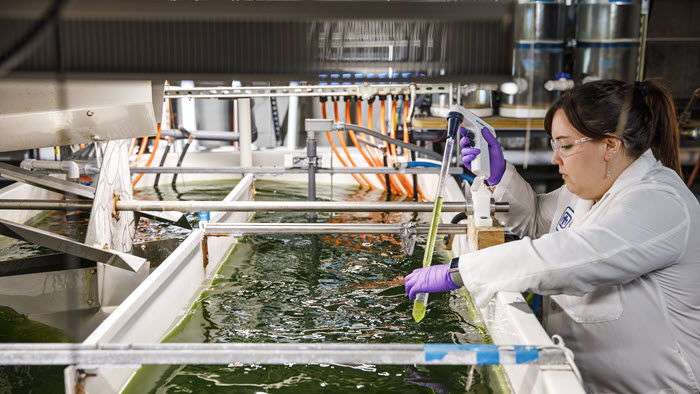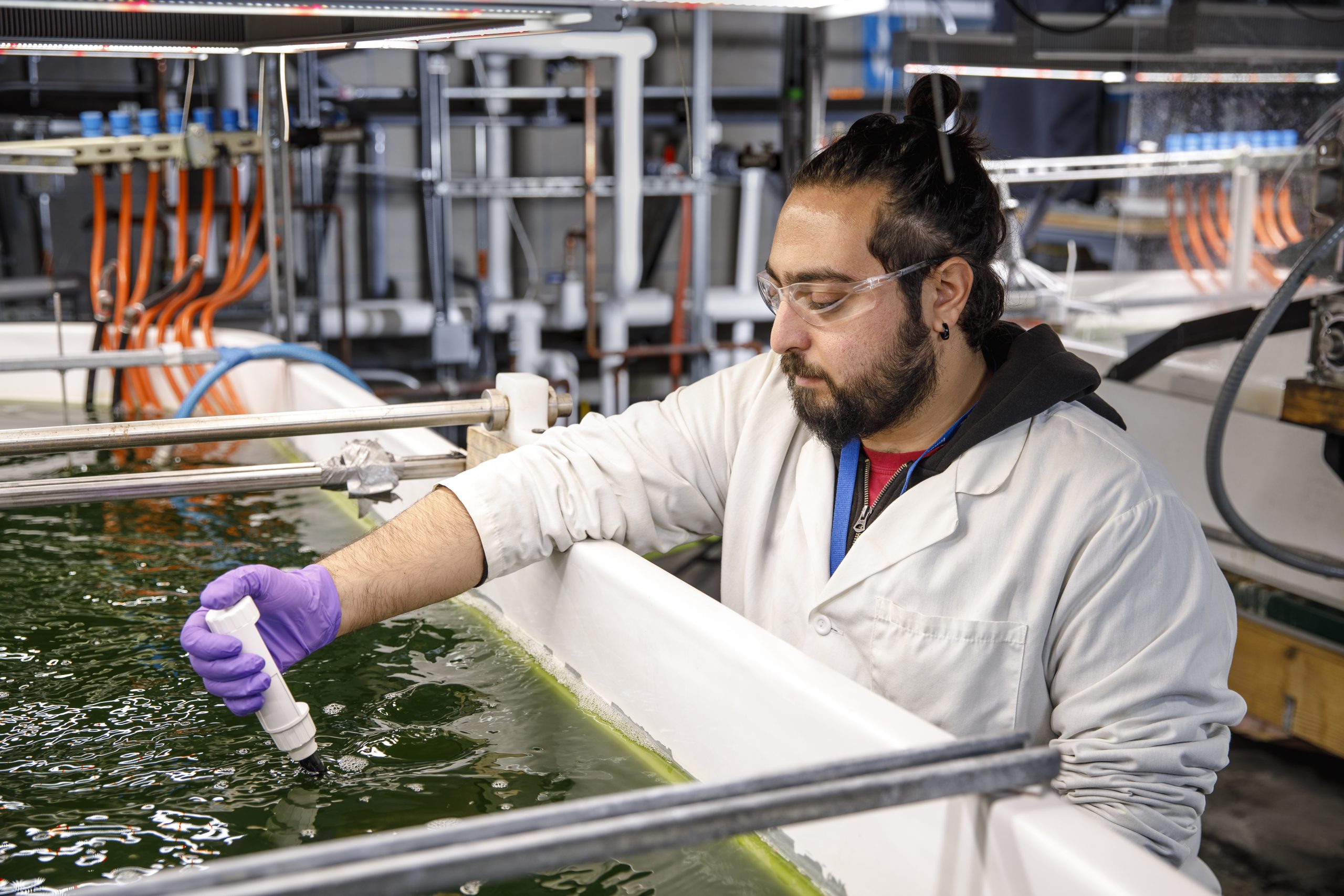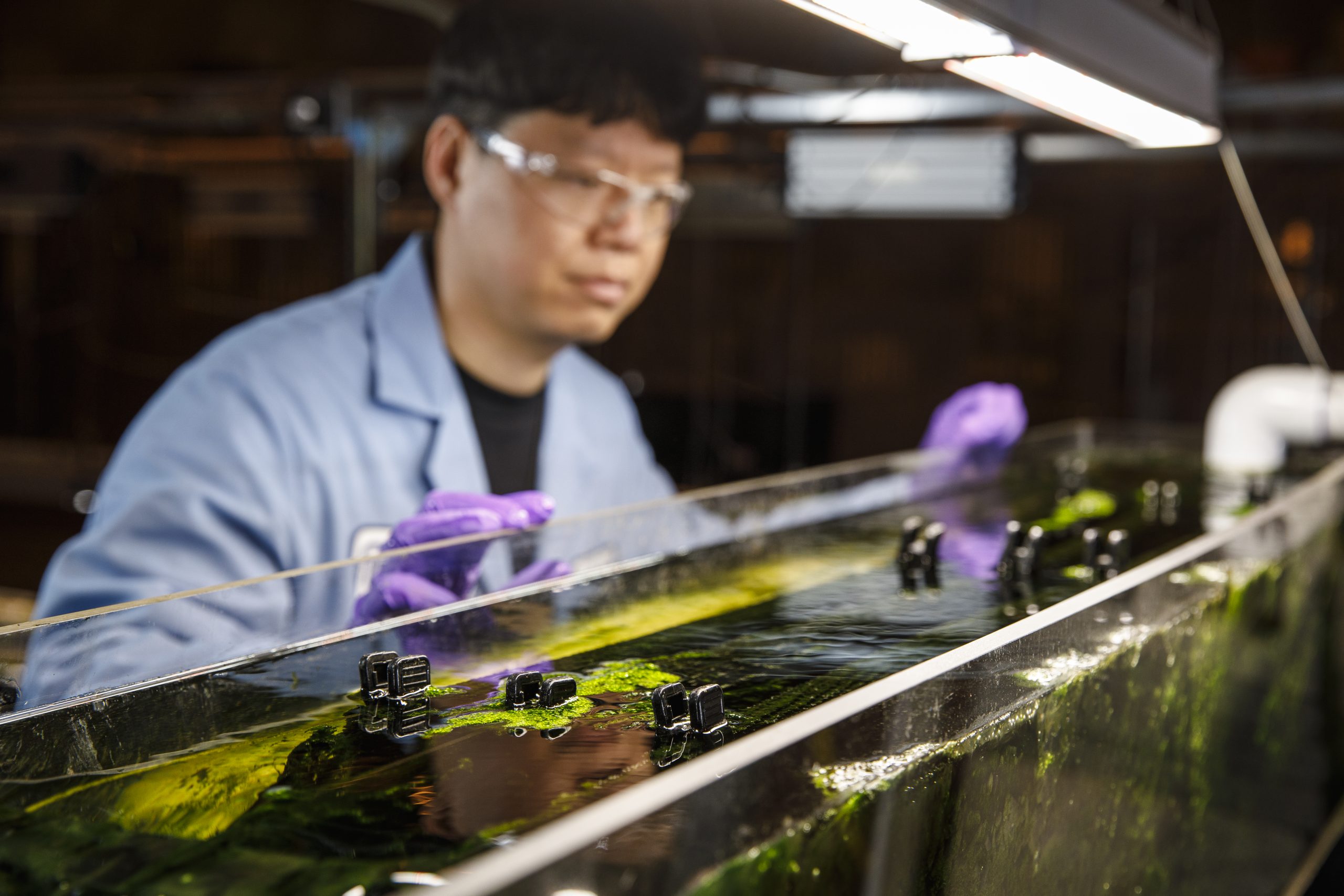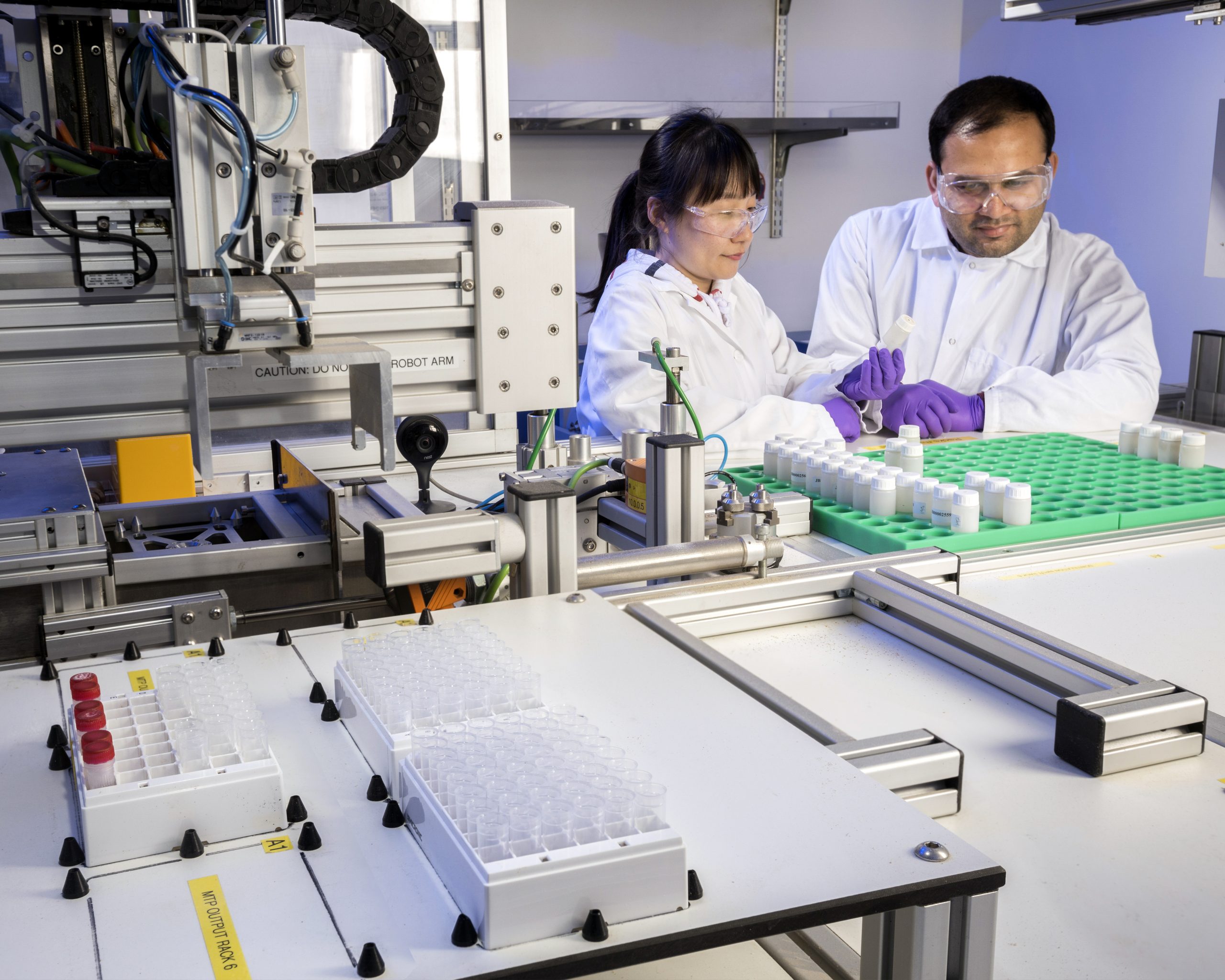
Sandia provides the foundational science and technology to enable the production of renewable fuels and bio-advantaged products from biomass. Sandia’s Biological Sciences research facilitates and safeguards the nation’s bioeconomy.
Sandia focuses on lignocellulosic, waste, and algal biomass feedstocks. Sandia’s unique capabilities encompass the areas of synthetic biology, pilot-scale algae cultivation, biomass characterization and conversion, high-throughput enzyme assays, systems analysis, lifecycle and techno-economic modeling, and computational bioscience for advanced bioproducts and biofuels production.
Sustainable Aviation Fuels
Sustainable aviation fuel (SAF) is produced using renewable or waste-derived sources. Aviation is considered an especially challenging transportation sector to electrify, and electrification is unlikely in the near term.
Among the six action areas of the SAF Grand Challenge Roadmap, Sandia specializes in Feedstock Innovation, Conversion Technology Innovation, and Enabling End Use.
- Expanding the production of feedstocks with purpose-grown algae and other renewable carbon resources
- Soil carbon sequestration modeling and experimentation
- Enabling the conversion of abundant waste streams to intermediates, fuels, and co-products
- Predicting fuel properties and identifying fuels
- Discovering efficient, low carbon-intensity pathways to SAF
- Optimizing blend constituents such that fuel properties meet drop-in specifications
- Understanding how to co-develop new combustor hardware in ways that leverage the beneficial properties of synthetic fuel components (e.g., improved thermal stability)
Algal Fuels and Products
Strain Improvement

Algal strain improvement develops highly productive algal cultures that resist predators and environmental stressors and are suitable for cultivation in large-scale algal farming operations.
Strain improvement R&D at Sandia includes:
- Prospecting and isolating algae strains to identify algae with desirable properties;
- Investigating potential biological improvements via selection, modification, and genetic engineering to improve photosynthetic efficiency, growth rates, lipid productivity, biomass yield, or other desirable traits;
- Increasing the productivity and stability of algal cultures through the modulation of the microbial ecology of the pond and engineering microbial consortia; and
- Developing and applying tools and methods to rapidly screen strains for promising traits and productivity.
Algae Production

Commercial-scale algae production could help meet the transportation fuel needs of the United States. Algal biofuels use a relatively small land area compared to lignocellulosic fuels—fuels produced from agricultural waste or energy crops. Microalgae consume CO2 as a nutrient, grow using impaired water sources (e.g., brackish water) on land that does not compete with food, and produce much higher fuel yields than other biomass feedstocks grown on land.
Sandia is focused on:
- Production and conversion of whole-turf algae polycultures that maximize fuels, chemicals, and other nutrients
- Real-time diagnostics and monitoring of pathogens and predators to mitigate crop losses from pond crashes
- Developing a molecular understanding of the stress in algal culture resulting from scale-up
- Conducting lifecycle and systems analysis of algal biorefineries
- Removing harmful nutrients and metals from waterways and recovering them for reuse
Waste and Biomass Conversion to Fuels and Products

Biomass from agricultural residues, forestry, biomass energy crops, and organic wastes have the potential to provide about one billion tons of renewable carbon resources per year that can serve as feedstocks to produce low carbon-intensity biofuels and other bioproducts.
Sandia is focused on:
- Advanced technologies that break down biomass and liberate sugars that can be converted to biofuels, developing a new toolbox to transform intermediates into fuels
- Consolidated fermentation of biomass from algae and other energy crops containing proteins when unsuitable for food or feed
- Development of platform organisms capable of consuming a wide range of biomass substrates and downstream conversion to valuable products at high titers, rates, and yields
- Understanding and developing a wide range of biochemical, chemical, and thermochemical approaches to depolymerizing lignin, a recalcitrant component of certain biomass, to increase its value
- Lifecycle analysis and techno-economic modeling
- Developing computational tools for retrosynthetic analysis
Contact
Damian Carrieri
(925) 294-2832
djcarri@sandia.gov
Anthe George
(925) 294-2723
angeorg@sandia.gov
